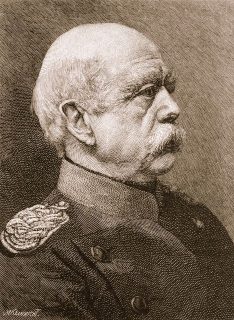By Uri Avnery with Gush Shalom
___

[ Editors note: Most of us are familiar with the old saying, “The devil (or god) is in the details.” All accountants, military logistics people, software coders, and executive secretaries would agree.
And so does Uri, as he takes us into the maze of the “never say die” one-state solution proponents for the Israeli-Palestinian conflict.
I won’t spoil the show, but one thing that really caught my attention was his sharing that every time he had ever asked any of the one-state proponents how would such a state work… none had a word to say.
I would have lost a $20-bet in a jiffy on that, as after all this time I would have guessed that this had been a common debate topic.
So this is why we like to bring in viewpoints from far away, but close to the problem, much more so than we are, to help us find out where our blind spots are. We have featured Uri here almost weekly because US media voluntarily censors itself by not touching any Zionist red-lined topic and avoids reporting on domestic politics there. They take the coward’s way out.

And despite some of the issues we have with Uri and his beloved Zionist state, we do learn things from him, and we admire his writing skill and look forward to his weekly missives.
There is a lesson for all of us in proposing solutions that sound good and offer a warm fuzzy feeling, because we have not actually had to put the thing together and run it.
As Uri starts out below, many of us prefer our contributions to be our ideas, and leave the heavy lifting to others.
I will close with Otto von Bismarck’s famous quote that “Politics is the art of the possible,” and its relevance to the One-State solution.
But that said, the Two-State one does not seem to be doing too well as an alternative.
As long as the militant Zionists can win or rig elections in Israel, it appears that we will see neither solution… Jim W. Dean ]
______________________________
– First published … June 20, 2015 –

There was this guy who had an earth-shaking invention: an airplane that flies on water. No more gas. No more pollution. No more astronomical prices.
Just fill it up with water, and it will fly to the end of the world. “Wonderful!” people cried out. “Show us the plans!”
“Plans?” the man said. “I have had the great idea. I leave it to the engineers to work out the technical details.”
The inventors of the “One-State Solution” remind me of this genius. They have a wonderful idea. But there are a few questions left open. First question: how can it be achieved? The obvious answer is: by war.
The Arab world will mobilize its armies. Israel will be conquered. The victors will impose their will. This may be possible within a few generations. I rather doubt it. In a world of nuclear arms, wars may end with mutual annihilation.
Well, if not war, then “outside pressure”. I doubt this, too. The international boycott movement is quite effective, in its way. But it is far, far from being able to compel Israelis to do something that is opposed by every fiber of their being: to give up their sovereignty.
The same goes for political pressure. It may hurt Israel, it may isolate it – though I don’t believe this is possible in this or the next generation – but this, too, won’t be enough to bring Israel to its knees.
Convince the majority in Israel? One has to be very remote from Israeli reality to believe that this can happen in the foreseeable future. For more than 130 years, now, the core of the Zionist and Israeli raison d’être has been Israeli (or “Jewish”) statehood. Many people have died for it. Every child in Israel is indoctrinated from kindergarten on, through school and the army, to see the state as the highest of all ideals. Give it up voluntarily? Not likely.
But for argument’s sake, let’s assume that one way or another, the One-State Solution becomes possible. Perhaps by divine intervention. How would it function?
In all my dozens of debates with One-Staters of all kinds, I have never, not even once, received an answer to this simple question. Not once. Like the inventor of the water-fueled plane, they leave that to the engineers. Let’s try. How will the state be named? Not an easy question.
The late Muammar Gaddafi proposed “Isratin” (why not Palesrael”?) I can think of “Holyland”, “State of Jerusalem” and other names. Perhaps just “The United State of Israel and Palestine” (let’s call it USIP). Various flags and national anthems have been proposed., some of them really inventive. Will anyone sacrifice their blood for them? But that, too, is not the real problem. It’s when we approach the realities of the state the questions multiply.
_____________________________
Practical Concerns

How will the state function on a day-to-day basis? How difficult that may be is illustrated by a simple historical fact: since World War II, there is not a single instance of two states or two peoples voluntarily coming together in one state. But there are ample instances of multinational states breaking apart. Let’s start with the Soviet Union, a mighty world power. Then Yugoslavia. Then Serbia. Czechoslovakia. Sudan.
Other countries are threatened with breakup. Who would have thought that the venerable United Kingdom might become Disunited? Scots, Catalans, Basques, Quebecois, East Ukrainians are waiting in line.
Only the Swiss, united by centuries of history, seem immune. And also Bosnia and Herzegovina. Be that as it may, let’s look more closely at the thing itself.
The State must have a united army. How will it function? Will Jews and Arabs serve in the same squad? Or will there be separate battalions or separate brigades? If there is trouble in Jewish neighborhoods, will Jewish units follow orders against their brethren?
In a war against an Arab state, how will Arab units act? Will the Chief of Staff be a Jew or an Arab? Perhaps by rotation? And the General Staff – half and half?
That’s easy, compared to the police. Will Jews and Arabs serve side by side, as they did during the British Mandate, when practically all local policemen belonged to secret nationalist organizations? How will this police force investigate nationalist crimes? Who will be the Inspector General?
Then there is the question of taxes. As of now, the average income of Jews in Israel is 25 times higher than that of Arabs in occupied Palestine. No, that is not a typo. Not 25% higher. 25 times higher! Will they pay the same taxes? Very soon, Jewish citizens would complain that they pay for nearly all the welfare and education of the Palestinian citizens. Trouble.
Then there are the problems of the political structure. Of course, there will be universal and free elections. How will citizens vote – according to their class interests or along ethnic lines?
Experience in many countries indicates that the ethnic identity will take precedence. In today’s Israel, that is the rule. During the British Mandate, there was only one joint party: the Moscow-line Communist one.
On the eve of the 1948 war, it split between Jews and Arabs. In the new State of Israel, they reunited (as ordered by Moscow) but then split again. Now it is in practice an Arab party, with a few Jewish followers.
In 1984 I took part in the foundation of a new party, the Progressive List for Peace, based on strict parity: our Knesset list was Arab, Jew, Arab, Jew, up to 120. In two successive election campaigns we entered the Knesset. But a curious thing happened: almost all our voters were Arabs. Soon after, the party disappeared.
I strongly suspect that in USIP the same will happen. In Parliament, two blocs will face each other in a climate of perpetual mutual animosity.
It will be extremely difficult to form a working government coalition composed of elements of both sides. Look at Belgium, another problematic bi-national state.
Some One-Staters admit that the project is only feasible if both peoples change their basic attitudes completely, and a spirit of mutual love and respect displaces the present nationalistic hatred and contempt.
Some 50 years ago I had a conversation with the then Indian ambassador in Paris, Kavalam Madhava Panikkar, a very respected statesman and scholar. We talked, of course, about Israeli-Palestinian peace, and he said: “It will take 51 years!”
Why exactly 51, I asked, surprised. “Because we need a new generation of teachers,” he said. “That will take 25 years. These new teachers will educate a new generation of pupils, who will be able to make peace, That will take another 25 years. Making peace will take one more year.” Well, 51 years have passed, and peace is further off than ever.
Matchmakers tend to say: “They don’t love yet, but once married and having children, they will come to love each other.” Perhaps. How long will it take? A hundred years? Two hundred years? Long before that, we shall all be dead.
The main argument against the One-State vision is that it will soon become the battlefield of a perpetual conflict, like Lebanon. There will not be a day of internal peace.
The greatest danger is that in such a state, with a growing Arab majority, affluent and highly educated Jewish citizens will slowly leave, as some are already doing now. In the end, only the poor and ill-educated will be left – a small Jewish community in another Arab state. I have a lurking suspicion that some of the Arab One-Staters embrace the idea for this reason alone — to put an end to Israel.
Israeli Jews and Palestinian Arabs are two of the most nationalist nations in the world. One has to be an extreme optimist – even more extreme than I – to believe that it will work.
Honest disclosure: I did once believe in the “One-State solution”, long before the term was invented.
In 1945, when I was 22 years old, I founded a group that was devoted to the idea that the new Hebrew nation in Palestine and the Arab nation in Palestine, bound by common love for the country, could become one joint nation and live in one common state.
Our ideology caused an uproar in the Zionist community in the country. We were universally condemned. But during the 1948 war, when I came into immediate contact with the Palestinian reality, I gave up this beautiful idea forever, and from 1949, on was one of the creators of the concept of the Two-State Solution.
I have a great respect for the adherents of the One-State Solution. Their motives are admirable. Their vision lofty. But it is disconnected from reality.
I would like to make one point quite clear: for me, the Two-State Solution is not a recipe for separation and divorce, but on the contrary, a kind of wedding. From the first day on, 66 years ago, when we, a tiny group, raised the banner of the Two-State Solution, it was clear to us that the two states, living close together in one small country, must live in close cooperation.
Borders must be open for the movement of people and goods, the economies closely intertwined. Some kind of federation is inevitable. Attitudes will slowly change on both sides.
Connections will be formed. Friendships will be established. Business interests will convince people. People will work together and come to like each other. As the Arabs say: Inshallah. When I am asked whether this is the best solution, my answer is: “It is the only solution.”

Jim W. Dean was an active editor on VT from 2010-2022. He was involved in operations, development, and writing, plus an active schedule of TV and radio interviews.
ATTENTION READERS
We See The World From All Sides and Want YOU To Be Fully InformedIn fact, intentional disinformation is a disgraceful scourge in media today. So to assuage any possible errant incorrect information posted herein, we strongly encourage you to seek corroboration from other non-VT sources before forming an educated opinion.
About VT - Policies & Disclosures - Comment Policy







